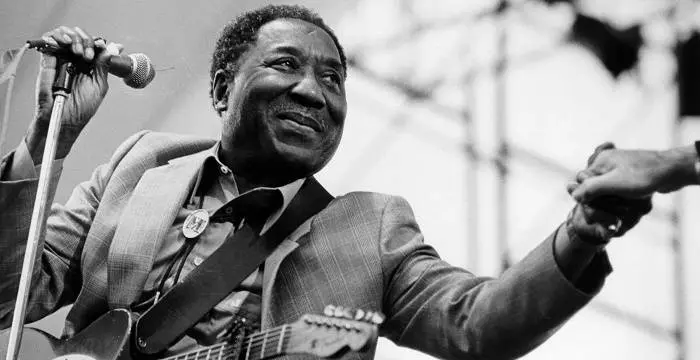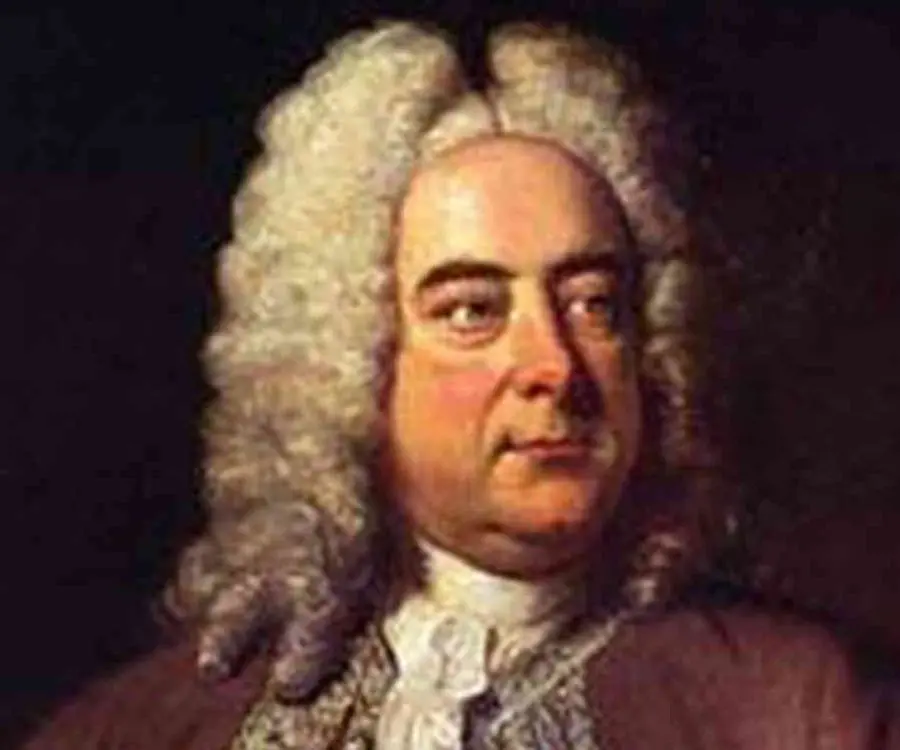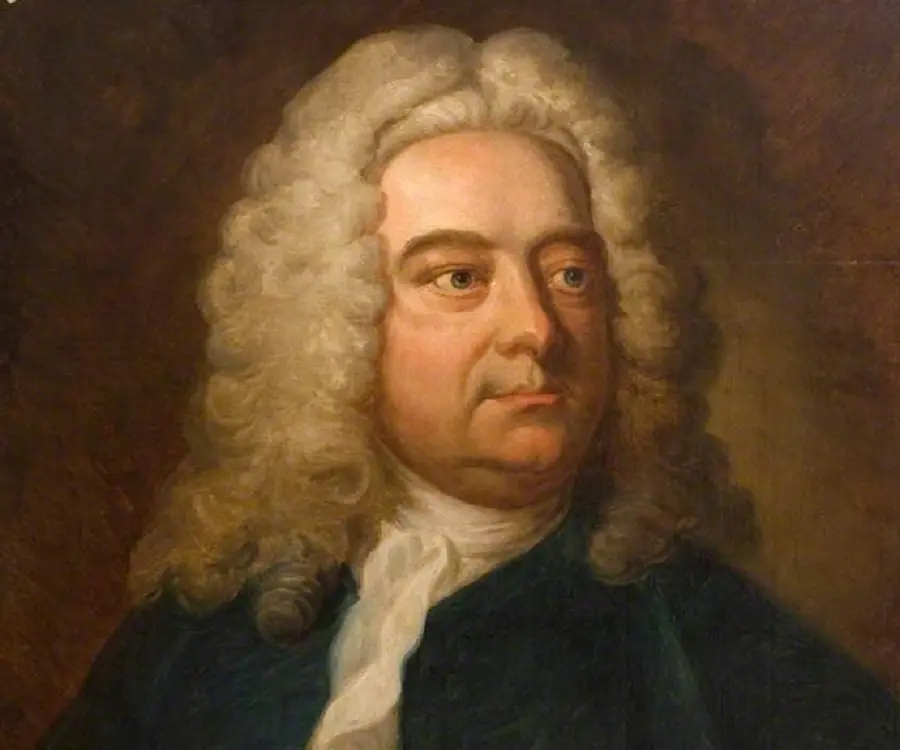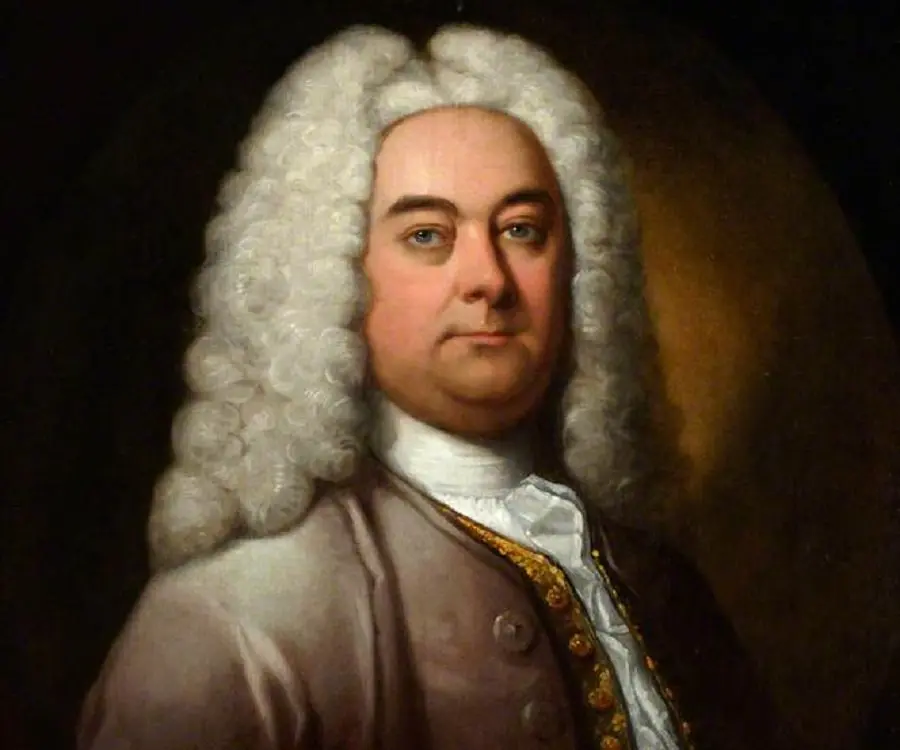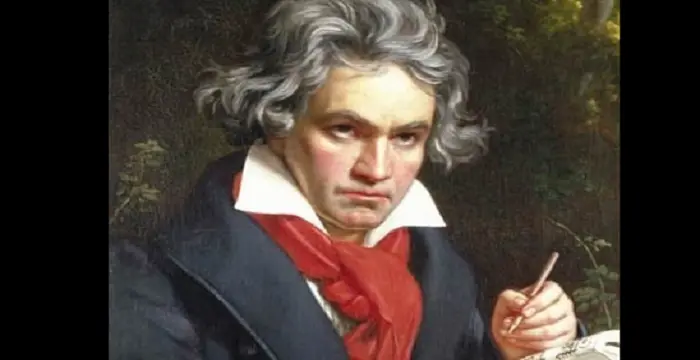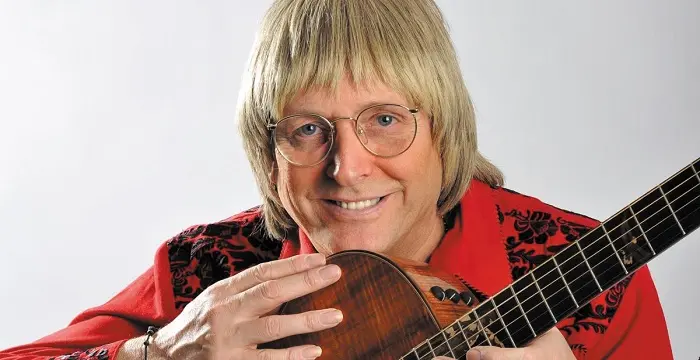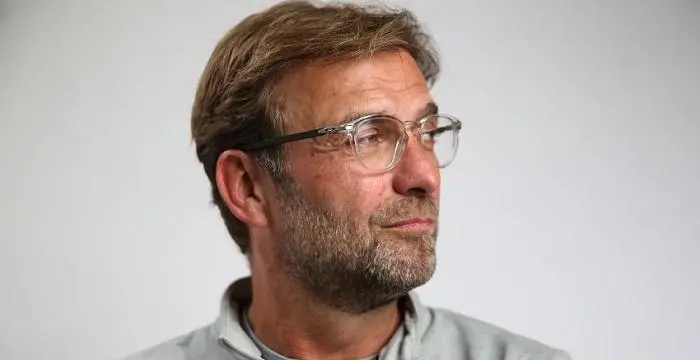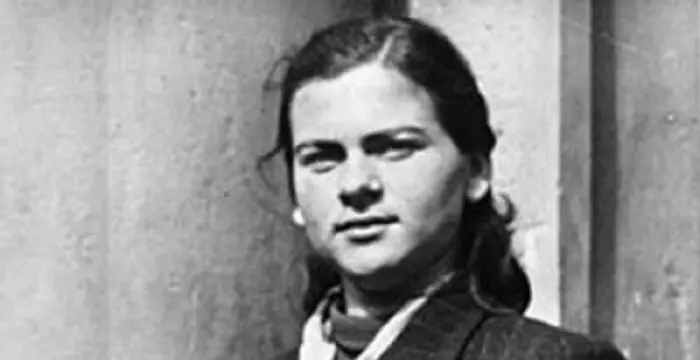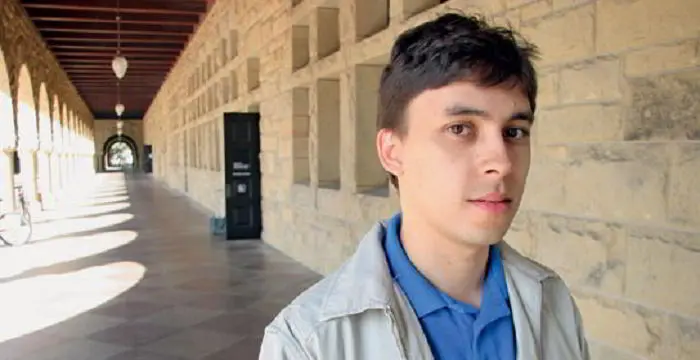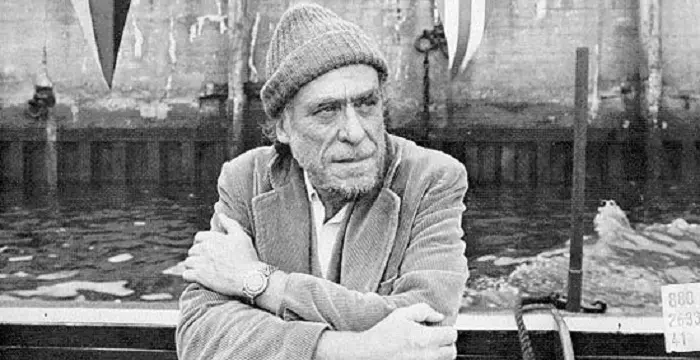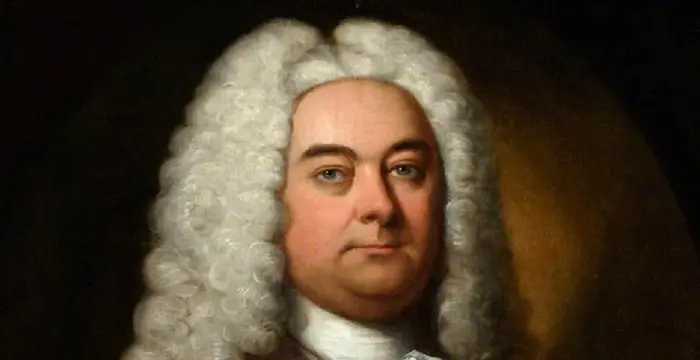
George Frideric Handel - Musicians, Career and Facts
George Frideric Handel's Personal Details
George Frideric Handel was a well-known German-British baroque composer, famed for his operas, oratorios, anthems, and organ concertos
| Information | Detail |
|---|---|
| Birthday | February 23, 1685 |
| Died on | April 14, 1759 |
| Nationality | German, British |
| Famous | Musicians, Composers |
| Siblings | Anna Barbara Händel, Christoph Händel, Dorothea Elisabet Händel, Dorothea Sophia Händel, Gottfried Händel, Johanna Christiana Händel, Karl Händel, Sophia Rosina Händel |
| Universities |
|
| Birth Place | Halle, Germany |
| Born Country | Germany |
| Gender | Male |
| Father | Georg Händel |
| Mother | Dorothea Taust |
| Sun Sign | Pisces |
| Born in | Halle, Germany |
| Famous as | Composer |
| Died at Age | 74 |
// Famous Musicians
Ted Nugent
Ted Nugent is a hard rock musician known for his hits ‘Stranglehold’ and ‘Cat Scratch Fever’. This biography of Ted Nugent provides detailed information about his childhood, life, achievements, works & timeline.
Muddy Waters
Muddy Waters was a blues musician referred to as the 'father of modern Chicago blues.' Check out this biography to know about his childhood, family life, achievements and fun facts about him.
Travis Bacon
Travis Bacon is an American musician and actor, better known as the son of veteran actors Kevin Bacon and Kyra Sedgwick. Find more about his family, birthday, etc.
George Frideric Handel's photo
Who is George Frideric Handel?
George Frideric Handel was a well-known German-British baroque composer, famed for his operas, oratorios, anthems, and organ concertos. Although born in Halle, Germany to German parents, he spent the greater part of his working life in London, and later on took British citizenship. Initially kept away from musical instruments by his father, who wanted him to go into legal profession, George Frideric Handel learned to play keyboard instruments secretly. Later, he had formal lessons from Friedrich Wilhelm Zachow, then a church organist at Halle, on the suggestion of Johann Adolf I, Duke of Saxe-Weissenfels, whose words his father could not disobey. Even as a student, he began to take up his master’s duties and started composing church music. Later he moved to Hamburg and then to Italy before being appointed a Kapellmeister at Hanover. But within a year he visited London, where his ‘Rinaldo’, an Italian opera especially composed for London, was received with great enthusiasm. Very soon, he received royal patronage and thereafter, except for a short sojourn at Hanover, he remained at London, continuing to produce operas and oratorios all most till the end of his life.
// Famous Composers
Ludwig van Beethoven
Ludwig Van Beethoven was one of the greatest composers the world has ever had. Check out this biography to know about his childhood, family life, and achievements.
Emina Jahović
Emina Jahović Sandal is a Serbian model, actress and singer-songwriter. Know more about her childhood, life, career, achievements and timeline in this biography.
John Denver
John Denver, a famous American singer-songwriter and activist, is remembered for songs like Take Me Home, Country Roads and Annie's Song. To know more about his childhood, career, profile and timeline read on
Childhood & Early Years
George Frideric Handel was born on 23 February 1685 in Halle-on-Saal, Duchy of Magdeburg, at that time a province of Brandenburg-Prussia, as Georg Friedrich Händel. His father, also Georg Händel, was a barber surgeon, serving in the court of Saxe-Weissenfels and the Margraviate of Brandenburg.
Handel’s mother, Dorothea Taust, was his father’s second wife. Daughter of a Lutheran Pastor, she bore her husband three children. Among them, George Frideric Handel was the eldest and he had two younger sisters named Dorothea Sophia and Johanna Christiana.
Handel also had six half-siblings, Dorothea Elisabet, Gottfried, Christoph, Anna Barbara, Karl, Sophia Rosina, from his father’s first marriage to Anna Belching.
It is believed that Handel began his education at a gymnasium in Halle. The headmaster of the institution, Johann Praetorius, was an ardent musician and might have influenced young Handel a great deal. But he did not study here for long.
His father, who wanted him to take up a career in law, was alarmed at Handel’s knack for music and therefore, withdrew him from the gymnasium. He also made sure no musical instrument entered his house and forbade young Handel from visiting any house that had one.
According to many of his biographers, he now managed to install a small clavichord in the attic with his mother’s help and practiced there when his father went to sleep. But very soon, a visit to Weissenfels, at the age of nine, changed the situation for better.
Around that time, his father took him to the court of Johann Adolf I, Duke of Saxe-Weissenfels, possibly to see one of his half-brothers under the employment of the Duke. There, unnoticed by all, young Handel made his way to the court organ and began playing on it.
The Duke, highly impressed by the rendering, told his father to arrange for his music lessons. Georg Händel, who aspired for a court appointment, could not disregard the suggestion. Therefore, on returning to Halle, he engaged Friedrich Wilhelm Zachow, the church organist as Handel’s music teacher.
Being a church organist, Zachow belonged to the old school and was proficient in fugues, canons and counterpoint. Concurrently, he was also aware of the developments across Europe. As he discovered Handel’s potential, he introduced him to all kinds of music.
Handel not only studied composition with him, but also learned to play different instruments like harpsichord, violin, organ and oboe. It is not known when, but very soon, he began taking his teacher’s place in the church services, composing music for the organ.
Handel’s father died on 11 February, 1697, a few days before his twelfth birthday. Despite his dedication to music, he continued his education, matriculating sometime in 17/01/1702. During this period, he wrote many church music, but they are now lost.
Early Career
On 10 February 1702, in deference to his father’s wishes, Handel enrolled at the University of Halle to study law, but music remained his main passion. On13 March, he was appointed organist at the Domkirche, a Calvinist Cathedral, for an honorarium of 5 thalers a year and free lodging.
When his probationary appointment at Domkirche expired on March 1703, Handel decided to move to Hamburg. Here, he found employment as a violinist in the orchestra of the Hamburg Oper am Gänsemarkt; but at the same time, drew attention with his skill with harpsichord.
Around this time, Handel also started writing opera, making his debut in early 1705 with ‘Der in Krohnen erlangte Glücks-Wechsel, oder: Almira, Königin von Castilien’. It was an instant success, running for twenty performances before being replaced by ‘Die durch Blut und Mord erlangete Lieb; oder, Nero’, also written by him.
During his stay at Hamburg, he also wrote ‘Der beglückte Florindo’ and ‘Die verwandelte Daphne’ at the request of Reinhard Keiser, the manager of the Hamburg Opera. But in 1706, before they could be premiered, he left for Italy at the invitation of either Ferdinando de' Medici or Gian Gastone de' Medici.
George Frideric Handel remained in Italy for approximately three opera seasons, visiting major cities like Florence, Venice, Rome, and Naples, meeting notable musicians like Arcangelo Corelli and Alessandro Scarlatti and his son Domenico. Simultaneously, he continued writing music.
Most important among them were two operas, ‘Rodrigo’, written in 1707 and ‘Agrippina’ in 1709. Among the two, ‘Agrippina’ was especially successful, running twenty-seven performance successively. Other than them, he also wrote several chamber works and sacred compositions, which became equally popular.
In London
Very soon, his mastery over Italian opera made Handel famous internationally. On 10 January 1710, his work was performed in London. In early March, Prince Carl von Neuburg offered him a court position. As he was not yet ready to settle down, he declined the offer.
He next moved to Hanover. There on 16 June 1710, he was appointed Kapellmeister to the elector of Hanover. However, he continued travelling around and on his second visit to Venice in the same year, he met number of musicians, who aroused in him an interest in London’s musical scenario.
Interested in a freelance career, he set out for London sometime towards the end of 1710. There on 24 February 1711, he had his ‘Rinaldo’, an Italian opera especially composed for London, premiered. It was greeted with great enthusiasm. Handel realized that he could have a successful career in England.
George Frideric Handel now began to learn English. However, he could not yet cut off his ties with the Germany, having to return to Hanover by the middle of 1711. In October 1712, he once again returned to London on condition that he should return to Hanover within a reasonable time.
On 10 January 1713, he had his operas ‘Teseo’ produced. Shortly, he also completed, ‘Il pastor fido’, ‘Utrecht Te Deum’ and ‘Birthday Ode for Queen Anne’. These works earned him royal favor and an annual allowance of £200.
In August 1714, with the death of Queen Anne, the elector of Hanover, George Louis, was proclaimed King George I of England. The new king arrived in London on 18 September and with that, Handel was no longer required to return to Hanover.
He soon found his position secured in the royal court. His ‘Water Music’, which he wrote on the request of the king and which was performed more than thrice on Thames for the Kkng and his guests in 1717, was a major work of this period.
Initially, Handel did not have any permanent address. Around 1715, he was invited by the 3rd Earl of Burlington and 4th Earl of Cork to live in his Burlington House in Piccadilly, London. While living there he wrote ‘Amadigi di Gaula’ for the Earl.
From August 1717 to February 1719, he lived in the country estate of Duke of Carnarvon, writing music for him. The twelve ‘Chandos Anthems’ and ‘Acis and Galatea’ are some of the major works of this period.
When the Royal Academy of Music was opened in February 1719, Handel was appointed as Master of the Orchestra. Apart from engaging soloist, he was responsible for adapting operas from abroad. ‘Radamisto’, ‘Giulio Cesare in Egitto’, ‘Tamerlano’ and ‘Rodelinda’ are few of operas he wrote for the company. .
By 1723, Handel set up his own establishment in a house he rented at 25 Brook Street. Except for a few visit to the Germany, he lived in this house till his death around twenty-six years later, continuing to create music.
In February 1727, he became a British subject and received appointment as a composer in Chapel Royal. In the same year, he was commissioned to write four anthems for the Coronation of King George II. One of them, ‘Zadok the Priest’, continues to be played at every coronation since then.
From Opera to Oratorios
In around 1728, Royal Academy of Music closed down. Handel now opened his own company. But around this time, as Gay's Beggar's Opera opened in London, the popularity of Italian opera, in which Handel specialized, began to fall. Although he refused to forsake it, he also started working on oratorios.
In 1732, he revived ‘Esther’, which he had written in 1718 while living in Cannons, into a full oratorio. Its success led him to produce two more oratorios; ‘Deborah’ on 17 March 1733 and ‘Athalia’ on 10 July 1733.
Very soon oratorios became regular features in the opera season. In the Lent of 1735, he produced fourteen concerts, made up mostly of oratorios. Concurrently, in spite of suffering losses, he continued to produce Italian operas, resulting in his opera company going bankrupt in 1737 and himself suffering a stroke.
For a time being, everybody believed that his musical career had come to an end. But after a course of treatment at Aachen in Germany, he was fit enough to compose ‘Funeral Anthem for Queen Caroline’. Thereafter, he continued to work, producing masterpieces till the very end.
Major Works
George Frideric Handel is best remembered for his 1741 work, ‘Messiah’, an English-language oratorio based on the life of Jesus Christ. The text was drawn both from Old and New Testament, with the final chorus from Book of Revelation. Source of the popular ‘Hallelujah Chorus’, it is one of the most frequently performed oratorios.
Personal Life & Legacy
Not much is known about George Frideric Handel’s personal life, which he liked to keep private. He never married, initially leaving his estate to her niece Johanna; but later distributed much of it among other relatives, friends, servants and charitable organizations.
Towards the end of 1740s, Handel began to have eye problems, possibly cataract. Although he had it operated, by 1752, he lost his vision completely. Yet, he continued to work till the end.
Handel died on April 14, 1759 at his rented house at Brook Street at the age of 74. He was buried in the West Minister Abbey and was given a state funeral. More than 3000 mourners are said to have attended the event.
In around 2000, the house he rented at 25 Brook Street in London was acquired and restored by Handel House Trust. In the following year, it was turned into Handel House Museum, which is now open to public six days a week.
// Famous Pisces Celebrities peoples
Christine Baumgartner
Christine Baumgartner is an American model and the wife of famous American actor Kevin Costner. Check out this biography to know about her birthday, childhood, family life, achievements and fun facts about her.
Galina Becker
Galina Becker is a former athlete and fitness model from America. Check out this biography to know about her birthday, childhood, family life, achievements and fun facts about her.
Nikkie De Jager
Check out all that you wanted to know about Nikkie De Jager, the famous Dutch Makeup artist; her birthday, her family and personal life, her boyfriends, fun trivia facts and more.
George Frideric Handel biography timelines
- // 23rd Feb 1685George Frideric Handel was born on 23 February 1685 in Halle-on-Saal, Duchy of Magdeburg, at that time a province of Brandenburg-Prussia, as Georg Friedrich Händel. His father, also Georg Händel, was a barber surgeon, serving in the court of Saxe-Weissenfels and the Margraviate of Brandenburg.
- // 11th Feb 1697 To 17th Jan 1702Handel’s father died on 11 February, 1697, a few days before his twelfth birthday. Despite his dedication to music, he continued his education, matriculating sometime in 17/01/1702. During this period, he wrote many church music, but they are now lost.
- // 10th Feb 1702On 10 February 1702, in deference to his father’s wishes, Handel enrolled at the University of Halle to study law, but music remained his main passion. On13 March, he was appointed organist at the Domkirche, a Calvinist Cathedral, for an honorarium of 5 thalers a year and free lodging.
- // Mar 1703When his probationary appointment at Domkirche expired on March 1703, Handel decided to move to Hamburg. Here, he found employment as a violinist in the orchestra of the Hamburg Oper am Gänsemarkt; but at the same time, drew attention with his skill with harpsichord.
- // 1705Around this time, Handel also started writing opera, making his debut in early 1705 with ‘Der in Krohnen erlangte Glücks-Wechsel, oder: Almira, Königin von Castilien’. It was an instant success, running for twenty performances before being replaced by ‘Die durch Blut und Mord erlangete Lieb; oder, Nero’, also written by him.
- // 1706During his stay at Hamburg, he also wrote ‘Der beglückte Florindo’ and ‘Die verwandelte Daphne’ at the request of Reinhard Keiser, the manager of the Hamburg Opera. But in 1706, before they could be premiered, he left for Italy at the invitation of either Ferdinando de' Medici or Gian Gastone de' Medici.
- // 1707 To 1709Most important among them were two operas, ‘Rodrigo’, written in 1707 and ‘Agrippina’ in 1709. Among the two, ‘Agrippina’ was especially successful, running twenty-seven performance successively. Other than them, he also wrote several chamber works and sacred compositions, which became equally popular.
- // 1710 To 24th Feb 1711Interested in a freelance career, he set out for London sometime towards the end of 1710. There on 24 February 1711, he had his ‘Rinaldo’, an Italian opera especially composed for London, premiered. It was greeted with great enthusiasm. Handel realized that he could have a successful career in England.
- // 10th Jan 1710Very soon, his mastery over Italian opera made Handel famous internationally. On 10 January 1710, his work was performed in London. In early March, Prince Carl von Neuburg offered him a court position. As he was not yet ready to settle down, he declined the offer.
- // 16th Jun 1710He next moved to Hanover. There on 16 June 1710, he was appointed Kapellmeister to the elector of Hanover. However, he continued travelling around and on his second visit to Venice in the same year, he met number of musicians, who aroused in him an interest in London’s musical scenario.
- // 1711 To Oct 1712George Frideric Handel now began to learn English. However, he could not yet cut off his ties with the Germany, having to return to Hanover by the middle of 1711. In October 1712, he once again returned to London on condition that he should return to Hanover within a reasonable time.
- // 10th Jan 1713On 10 January 1713, he had his operas ‘Teseo’ produced. Shortly, he also completed, ‘Il pastor fido’, ‘Utrecht Te Deum’ and ‘Birthday Ode for Queen Anne’. These works earned him royal favor and an annual allowance of £200.
- // Aug 1714In August 1714, with the death of Queen Anne, the elector of Hanover, George Louis, was proclaimed King George I of England. The new king arrived in London on 18 September and with that, Handel was no longer required to return to Hanover.
- // 1715Initially, Handel did not have any permanent address. Around 1715, he was invited by the 3rd Earl of Burlington and 4th Earl of Cork to live in his Burlington House in Piccadilly, London. While living there he wrote ‘Amadigi di Gaula’ for the Earl.
- // 1717He soon found his position secured in the royal court. His ‘Water Music’, which he wrote on the request of the king and which was performed more than thrice on Thames for the Kkng and his guests in 1717, was a major work of this period.
- // Aug 1717 To Feb 1719From August 1717 to February 1719, he lived in the country estate of Duke of Carnarvon, writing music for him. The twelve ‘Chandos Anthems’ and ‘Acis and Galatea’ are some of the major works of this period.
- // Feb 1719When the Royal Academy of Music was opened in February 1719, Handel was appointed as Master of the Orchestra. Apart from engaging soloist, he was responsible for adapting operas from abroad. ‘Radamisto’, ‘Giulio Cesare in Egitto’, ‘Tamerlano’ and ‘Rodelinda’ are few of operas he wrote for the company. .
- // 1723By 1723, Handel set up his own establishment in a house he rented at 25 Brook Street. Except for a few visit to the Germany, he lived in this house till his death around twenty-six years later, continuing to create music.
- // Feb 1727In February 1727, he became a British subject and received appointment as a composer in Chapel Royal. In the same year, he was commissioned to write four anthems for the Coronation of King George II. One of them, ‘Zadok the Priest’, continues to be played at every coronation since then.
- // 1728In around 1728, Royal Academy of Music closed down. Handel now opened his own company. But around this time, as Gay's Beggar's Opera opened in London, the popularity of Italian opera, in which Handel specialized, began to fall. Although he refused to forsake it, he also started working on oratorios.
- // 1735 To 1737Very soon oratorios became regular features in the opera season. In the Lent of 1735, he produced fourteen concerts, made up mostly of oratorios. Concurrently, in spite of suffering losses, he continued to produce Italian operas, resulting in his opera company going bankrupt in 1737 and himself suffering a stroke.
- // 1740 To 1752Towards the end of 1740s, Handel began to have eye problems, possibly cataract. Although he had it operated, by 1752, he lost his vision completely. Yet, he continued to work till the end.
- // 1741George Frideric Handel is best remembered for his 1741 work, ‘Messiah’, an English-language oratorio based on the life of Jesus Christ. The text was drawn both from Old and New Testament, with the final chorus from Book of Revelation. Source of the popular ‘Hallelujah Chorus’, it is one of the most frequently performed oratorios.
- // 14th Apr 1759Handel died on April 14, 1759 at his rented house at Brook Street at the age of 74. He was buried in the West Minister Abbey and was given a state funeral. More than 3000 mourners are said to have attended the event.
- // 2000In around 2000, the house he rented at 25 Brook Street in London was acquired and restored by Handel House Trust. In the following year, it was turned into Handel House Museum, which is now open to public six days a week.
// Famous German peoples
Jordan Carver
Jordan Carver is a famous German model. Let’s take a close look at her personal life, including her age, career, net worth, achievements and some fun facts.
Jürgen Klopp
Jürgen Klopp is a German football manager, and a former professional football player. Check out this biography to know more about his childhood, family, personal life, etc.
Irma Grese
Irma Grese was a notorious German Nazi concentration camp guard during the Second World War. This biography profiles her childhood, life, horrifying acts, death and other facts.
Juliane Koepcke
Juliane Koepcke is a German-Peruvian biologist, who was the lone survivor among the 92 passengers and crew of the ill-fated LANSA Flight 508 that crashed in the Peruvian rainforest on 24 December 1971. Know more about her life in this biography.
Jawed Karim
Jawed Karim is a German-American internet entrepreneur, technologist and co-founder of the video-sharing website, YouTube. Check out this biography to know about his childhood, family, personal life, achievements, age, etc.
Charles Bukowski
Charles Bukowski was a German-born American novelist, short story writer and poet. With this biography, learn in details about his childhood, life, works, career and timeline
George Frideric Handel's FAQ
What is George Frideric Handel birthday?
George Frideric Handel was born at 1685-02-23
When was George Frideric Handel died?
George Frideric Handel was died at 1759-04-14
Where was George Frideric Handel died?
George Frideric Handel was died in London
Which age was George Frideric Handel died?
George Frideric Handel was died at age 74
Where is George Frideric Handel's birth place?
George Frideric Handel was born in Halle, Germany
What is George Frideric Handel nationalities?
George Frideric Handel's nationalities is German, British
Who is George Frideric Handel siblings?
George Frideric Handel's siblings is Anna Barbara Händel, Christoph Händel, Dorothea Elisabet Händel, Dorothea Sophia Händel, Gottfried Händel, Johanna Christiana Händel, Karl Händel, Sophia Rosina Händel
What was George Frideric Handel universities?
George Frideric Handel studied at Martin Luther University of Halle-Wittenberg
Who is George Frideric Handel's father?
George Frideric Handel's father is Georg Händel
Who is George Frideric Handel's mother?
George Frideric Handel's mother is Dorothea Taust
What is George Frideric Handel's sun sign?
George Frideric Handel is Pisces
How famous is George Frideric Handel?
George Frideric Handel is famouse as Composer

